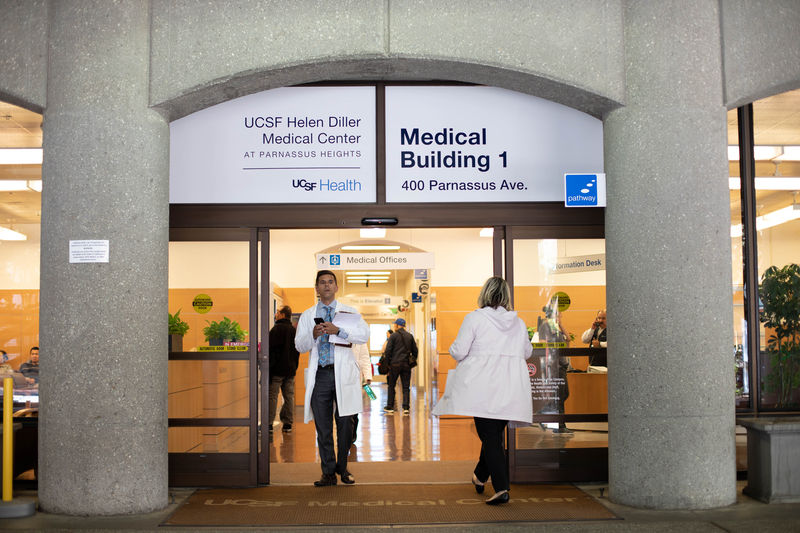
The most common symptoms of ILD are fatigue, dry cough, and shortness of breath (dyspnea). Not everyone experiences these, but many do. Over time, some people with ILD, particularly those with idiopathic pulmonary fibrosis (IPF), will experience increased symptoms.
Our palliative care team of experts are skilled at evaluating and managing the symptoms associated with ILD. We encourage you to speak with your care team about a referral to palliative care for support around these symptoms. See our palliative care section for more information.
Fatigue
Fatigue is a common symptom individuals with ILD report. Like cough and shortness of breath, it can be caused in part by comorbidities such as pulmonary hypertension, cardiac dysfunction, anemia, deconditioning, and depression. Other big culprits are medications including those used for IPF. Many have found a regular exercise regimen to be helpful. Talk to your provider about pulmonary rehabilitation and maintenance programs.
Dry Cough

Cough can negatively impact of the quality of life in patients with interstitial lung disease. It is present in almost 80% of those diagnosed with idiopathic pulmonary fibrosis. Typically, cough in ILD is dry (non-productive of sputum), although many do note some productive cough mostly noticeable in the mornings. While the actual cause of cough remains unclear, it is thought to be due to the pulling or stretching of scarred or inflamed lung tissue which then triggers cough. Frustratingly, there is no FDA-approved treatment for cough in ILD. In general, your provider will first want to make sure that there are no other causes for your cough. These include:
1. Rule out asthma as a cause of your cough
- Perform breathing tests using a bronchodilator
- Look at the numbers before and after the bronchodilator to see if you have “reactive” airway disease that might respond to an inhaled bronchodilator and decrease cough.
2. Rule out medications, heartburn or gastro-esophageal reflux disease (GERD) as a cause of your cough. Some patients may be aspirating stomach contents from their esophagus (throat) into their trachea (airway). This can happen ‘silently’ while you sleep, or can be associated with burning or pain behind your breastbone (sternum) or upper stomach.
- We may refer you to a gastrointestinal (GI) specialist to measure the movement of your esophagus, the acidity in your stomach, and the movement of food through your stomach to determine if you are at risk for reflux.
- You may also be prescribed medications to decrease the stomach acid such as Prilosec (omeprazole is the generic), Nexium, Aciphex or Prevacid. These medications should be taken about ½ hr before breakfast and before dinner. We may ask you take these medications even if you don’t feel symptoms of heartburn (LINK TO GERD SECTION).
3. Rule out post-nasal drip or rhinitis as the cause of your cough.
- You may be prescribed nasal sprays to decrease the dripping down the back of your throat, which can also be aspirated into the airway and cause cough.
- Salt water nasal irrigation to decrease nasal secretions may be indicated in some pts.
4. Some medications we may try for cough:
- Tessalon Perles (benzonatate) 100-200mg, three times a day
- Baclofen (a type of muscle relaxant – potential sleepiness or dizziness – rarely used)
- Gabapentin- treats nerve-related causes; can also cause drowsiness, dizziness
- Narcotic cough syrup (codeine based)
Tips from our Patients!
1. Cough lozenges – use as soon as you feel cough coming on OR just before getting on the phone, going to movie, etc…
- (HALLS-Mentho-Lyptus honey lemon flavored; menthol cough suppressant oral anesthetic with advance vapor action)
- Fisherman’s Friend- original extra strong, extra soothing, all natural cough suppressant/oral anesthetic lozenge ($3.50 for 38)
- Try to find sugar-free lozenge versions if dentist starts finding cavities….
- Slippery elm – available at health foods stores
- Black elderberry lozenges
2. Herbal Cough Syrup: Osha Root Complex Syrup and Singers Saving Grace throat spray from www.herbsetc.com
3. Black Licorice bites or licorice tea: there is a small amount of information on the cough suppressant properties of licorice. Some patients report that sucking on the short ‘bites’ of black licorice helps their cough (Beware sugar!). Other options are boiling licorice to make tea.
4. Ginger Tea: boiling raw ginger to make tea
5. Hot water with lemon and honey
6. Maintain adequate oxygenation (some of our patients say their cough worsens if their oxygen levels drop)
7. Turn up your oxygen or use a mask with your oxygen during coughing spells, as people frequently mouth breathe during coughing
8. Sips of ice cold water at first ‘tickle’ of cough
9. Try strategies to calm yourself and slow your breathing when coughing attacks occur
Shortness of Breath (Dyspnea)
People develop shortness of breath for any number of reasons, at its most severe, it can be a sign of a medical emergency. Shortness of breath can cause panic and anxiety, as it may feel as though one is suffocating. It can significantly limit one’s level of activity.
Sometimes shortness of breath occurs because one’s oxygen is low. In this case, supplemental oxygen can help one feel better. If your oxygen saturations are normal, however, supplemental oxygen is no more effective as cool fresh air blowing across your face. Sometimes, the feeling of shortness of breath can jumpstart feelings of panic which then worsen the feeling of shortness of breath. Addressing the emotional distress with meditation and other relaxation therapies may be helpful in such instances.
There exists nonpharmacologic and pharmacologic therapies to help manage shortness of breath. Ask your provider about these options, especially if they are interfering with your ability to stay active and engaged in your usual daily routines.
